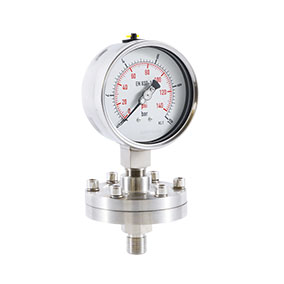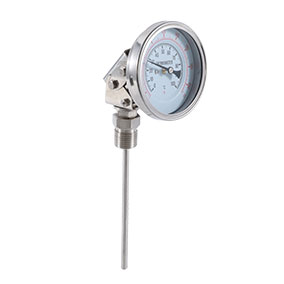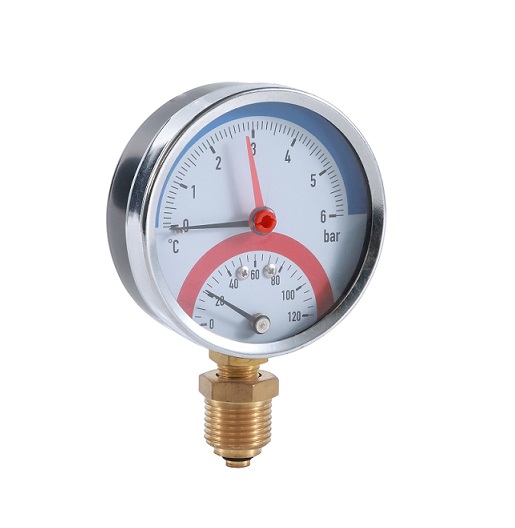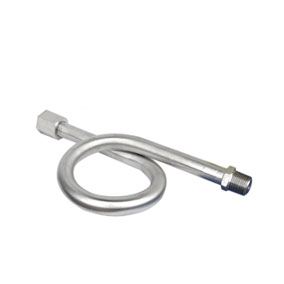Temperature Gauge: An In-Depth Guide to Enhance Your Measurement Precision
What Users Care About: A Comprehensive Analysis
Understanding users’ concerns is crucial for designing effective solutions. Below are key elements users prioritize when choosing a temperature gauge thermometer:
*Accuracy and Reliability: Users seek thermometers that deliver precise and consistent temperature readings, ensuring reliable measurements.
*Ease of Use: They prefer thermometers that are user-friendly, providing straightforward readings without complicated procedures.
*Versatility: Users often look for thermometers that can measure various temperatures in different environments or applications.
*Durability and Longevity: Thermometers should withstand wear and tear, providing long-lasting performance.
*Affordability and Value: Users consider the cost and value proposition of thermometers, seeking devices that offer optimal features at a reasonable price.
Step-by-Step Approach to Choosing the Ideal Thermometer
Follow these steps to find the best temperature gauge thermometer for your needs:
1.Identify Your Measurement Requirements: Determine the temperature range, accuracy, and response time necessary for your applications.
2.Research Different Types: Explore various thermometer types (e.g., contact, non-contact, digital, analog) and their suitability for your needs.
3.Consider Features and Specifications: Review the features and specifications of different thermometers, comparing their accuracy, resolution, operating range, and additional features.
4.Check Reviews and Recommendations: Seek feedback from other users or consult trusted review platforms to gather insights into the performance and reliability of different thermometers.
5.Consider Your Budget: Determine the price range you are willing to invest and narrow down your choices accordingly.
Applications and Benefits: Enhancing Measurement Capabilities
Temperature gauge thermometers find applications in numerous fields, offering a wide range of benefits:
*Medical Diagnosis and Monitoring: Accurately measuring body temperature aids in diagnosing and monitoring various medical conditions.
*Industrial Processes: Precise temperature control is essential for industrial applications such as manufacturing, food processing, and pharmaceuticals.
*Environmental Monitoring: Monitoring temperature in various environments, from greenhouses to weather stations, is crucial for data collection and analysis.
*Scientific Research: Temperature measurements play a vital role in scientific research, allowing researchers to investigate temperature-dependent phenomena.
*Domestic Use: Homeowners use thermometers for temperature regulation, cooking, and ensuring comfort in their living spaces.
Helpful Tips for Optimal Temperature Measurement
*Calibrate Regularly: Ensure your thermometer is calibrated periodically to maintain accuracy and consistency.
*Select the Right Type: Choose a thermometer that aligns with the temperature range, application, and accuracy requirements.
*Follow Usage Guidelines: Refer to manufacturer’s instructions for proper usage, handling, and maintenance.
*Clean and Maintain: Periodically clean your thermometer and its probe to prevent contamination and ensure proper operation.
*Store Safely: Store your thermometer in a clean and protected location when not in use.
FAQ – Useful Questions and Answers
Q: What is the difference between a contact and non-contact thermometer?
A: Contact thermometers measure temperature through physical contact with the object, while non-contact thermometers measure temperature without touching the object using infrared radiation.
Q: What factors affect the accuracy of temperature measurements?
A: Factors include calibration, ambient temperature, object emissivity (non-contact thermometers), and probe placement (contact thermometers).
Q: How can I ensure the reliability of my temperature measurements?
A: Calibrate your thermometer regularly, use a traceable reference standard, and follow proper measurement techniques.
Q: What are the potential applications of temperature gauge thermometers?
A: Medical diagnostics, industrial processes, environmental monitoring, scientific research, and domestic use.
Q: What are the advantages of high-resolution temperature gauge thermometers?
A: They can measure minute temperature changes, providing more detailed and precise data.
Ma anshan Exact Instrument Co., Ltd. is an international temperature Instruments manufacturer. We have a wide variety of products and high-quality services. If you have any needs, please contact us!





